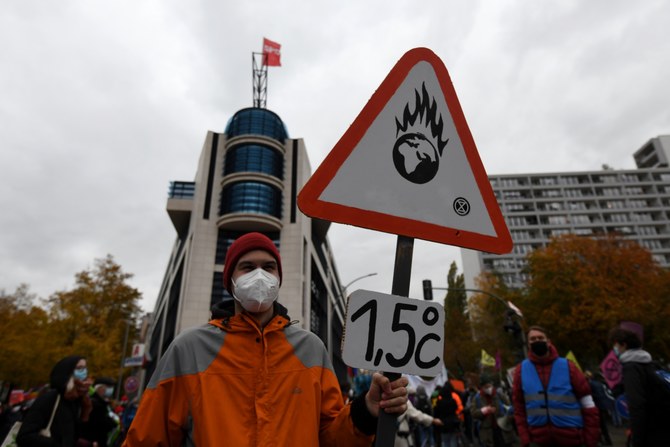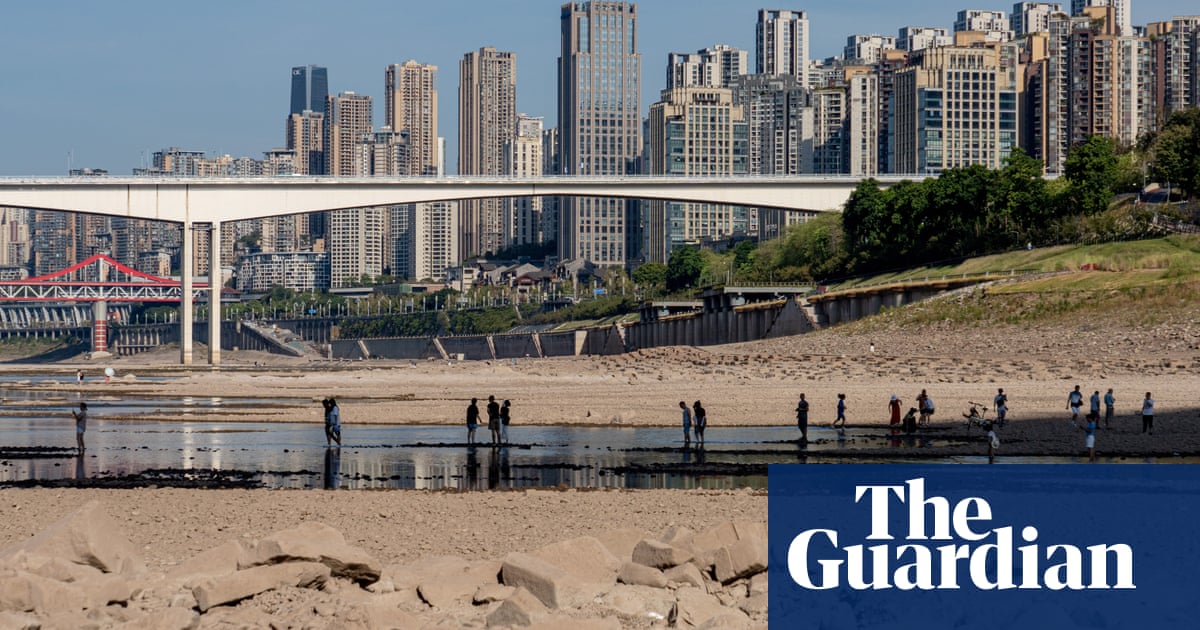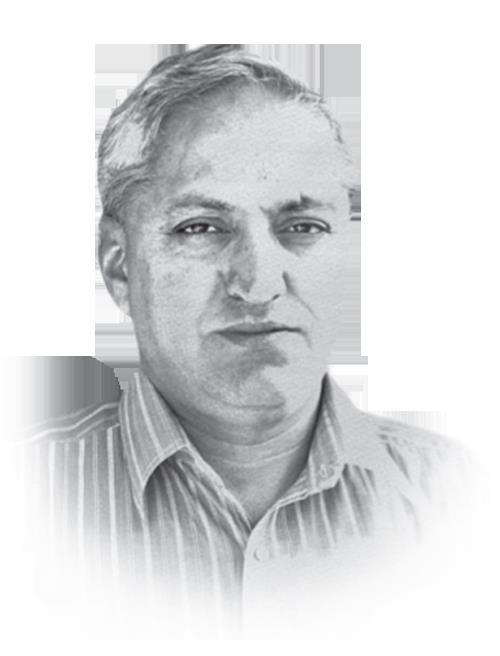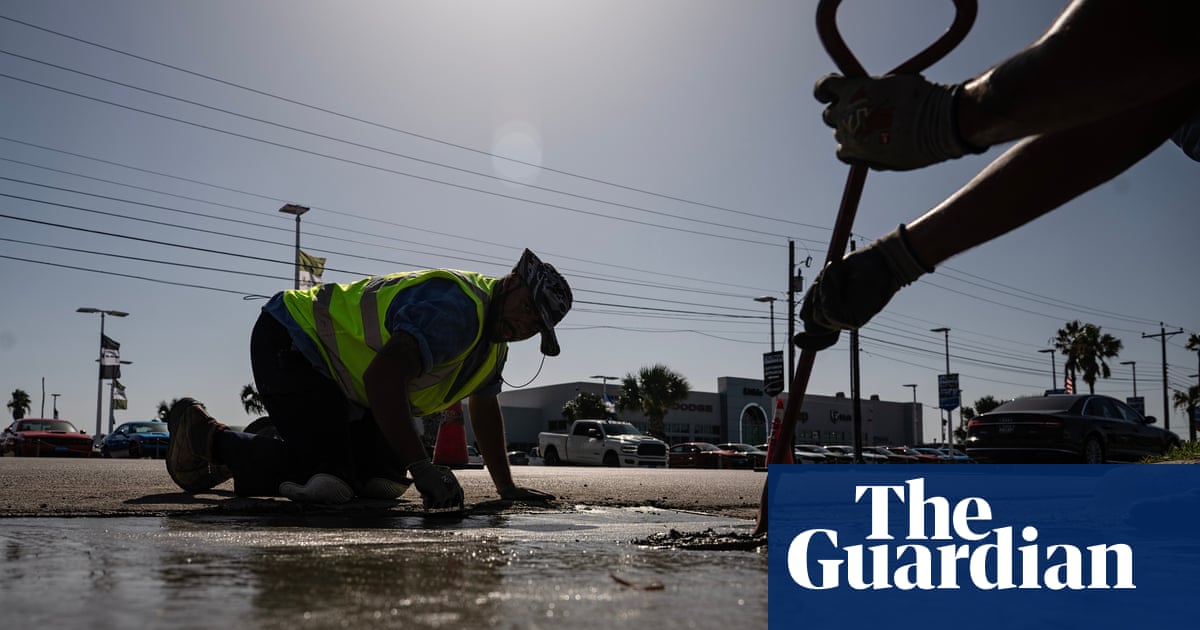
Generally speaking, my fellow Englishmen get excited when the mercury edges above about 15 degrees Celsius. Northern Europeans spend their summers sun-seeking and empty their bank accounts for sun-worshipping extravaganzas in the eternal quest for even a mild tan and golden rays. When the temperature in the UK topped 40 C last summer for the first time in recorded history, this was seen as furnace-like extreme heat.
But for those living in areas like the Middle East, people may be starting to head in the opposite direction. Instead of seeking the sun, they will be trying to avoid it for several months of the year.
Remember that the world’s existing struggles with extreme heat and weather events are the consequence of a 1 C change in global temperatures compared to pre-industrial levels. Scientists are at pains to explain what a 1.5 C rise might mean, while also warning that, on the current trajectory, the increase could be as much as 2.5 C. The past eight years were collectively the hottest on record. Southeast Asia is currently setting heat records. Scientists have reported that drought in the Horn of Africa has been made 100 times more likely by climate change.
Extreme heat caused by climate change threatens the way of life of millions of people. It is very much one of the major extreme weather events that threaten to alter the planet permanently. A new study published in the Nature Sustainability journal reaffirms how serious a risk this is. Overall, the study determined that 419 million people in 57 countries were vulnerable to 1.5 C of global warming over the next few years. The elderly would be at particular risk.
Extreme heat is very much one of the major extreme weather events that threaten to alter the planet permanently
Chris Doyle
The Middle East and North Africa region is one of the hottest on the planet, containing about 70 percent of the world’s most water-stressed countries. Temperatures may even hit 60 C before long. For example, 80 percent of the population of the UAE will be vulnerable after a planetary temperature rise of 1.5 C. The temperatures will rise and heatwaves will also last much longer.
The Arabian Peninsula and southern Iraq may be hit hardest, but the Levant will also suffer. These countries will have to prepare for a 25 percent drop in precipitation and everything that entails. The Jordan Valley has already experienced massive temperature rises. It would be ironic if Israeli settlers, who have exerted so much energy into colonizing this currently extremely fertile zone, were soon forced to leave the area because it had become uninhabitable.
The populations of poorer nations will be even more vulnerable. They do not have the resources for the necessary investment to mitigate against extreme temperatures. Even Iraq, which has seen temperatures rise above 50 C, does not have the resources and the electricity grid cannot cope. One survey found that only 8 percent of the 2.8 billion people inhabiting the hottest areas of the world have air conditioners. But then again, unless air conditioners operate on renewable energy, more of them will not be a solution.
Extreme heat will affect so many aspects of life. Heat-related deaths will just go up and up. Working outdoors will become ever more dangerous, not least in agriculture and the construction industry. Air quality will continue to deteriorate. In Iraq, breathing difficulties from dust storms are on the increase. Expect crop yields to decrease as growing seasons shorten. Food insecurity will be on the rise. How can you hold sporting events?
Mental health also becomes an issue. Research shows — and this is hardly a shock — that, in extreme heat, crime, violence and hate all rise. It also increases depression and anxiety. Millions will be very hot under the collar.
It is not just humans and other animals that are at risk. Infrastructure such as pipes, electricity networks, buildings and steel will all buckle under this sustained solar assault. The toll will also be felt in healthcare systems. Agriculture is already being affected, as are water supplies.
The pace of action at the moment seems far too glacial, too half-hearted, too ad hoc to address the scale of the challenge
Chris Doyle
Seawater will warm and expand. Here, the MENA region is also highly vulnerable. The Nile Delta would be acutely affected, as would the south of Iraq around the Shatt Al-Arab. In the Arabian Gulf, Abu Dhabi, Doha, Manama and Dubai are all to be found on low-lying coastal zones or islands.
Migration will also escalate. Who can blame those affected? Scientists estimate that 1 billion people could migrate to cooler climes. This is where the human, as opposed to the economic, cost of climate change comes in. Where will these people go?
So, as the world gathers later this year in the UAE for the COP28 summit, expect to hear more about the dangers of extreme heat. What is needed, however, is to hear more about the solutions and a willingness to take the sort of drastic action that may ward off the more nightmarish extremes of climate change. The pace of action at the moment seems far too glacial, too half-hearted, too ad hoc to address the scale of the challenge. One wonders how hot it has to get.
All this is, of course, assuming that the world community does not succeed in reducing greenhouse gas emissions and is able to arrest the steep global temperature rises. We cannot leave it all to gambling on scientists coming up with innovative solutions — leaders and publics will have to accept and embrace the costs and the pain that will be required to move forward and dodge cataclysmic catastrophe.
Many promises and pledges have been solemnly made, but all too often have not been delivered on. It requires financing for the poorer nations but also to deliver on massive reductions in carbon dioxide emissions. Do we have to wait for further disasters to take serious action? Let us hope not. The longer genuine action is delayed, the harder, more painful and more costly it is going to get.
Chris Doyle is director of the London-based Council for Arab-British Understanding (CAABU). He has worked with the council since 1993 after graduating with a first-class honors degree in Arabic and Islamic Studies at Exeter University. He has organized and accompanied numerous British parliamentary delegations to Arab countries. Twitter: @Doylech












